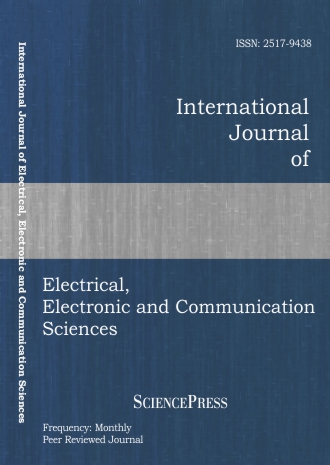
Scholarly
Volume:8, Issue: 2, 2014 Page No: 308 - 313
International Journal of Electrical, Electronic and Communication Sciences
ISSN: 2517-9438
Matlab/Simulink Simulation of Solar Energy Storage System
This paper investigates the energy storage
technologies that can potentially enhance the use of solar energy.
Water electrolysis systems are seen as the principal means of
producing a large amount of hydrogen in the future. Starting from the
analysis of the models of the system components, a complete
simulation model was realized in the Matlab-Simulink environment.
Results of the numerical simulations are provided. The operation of
electrolysis and photovoltaic array combination is verified at various
insulation levels. It is pointed out that solar cell arrays and
electrolysers are producing the expected results with solar energy
inputs that are continuously varying.